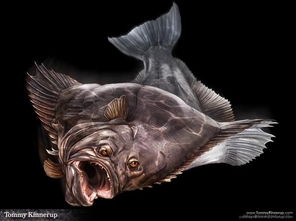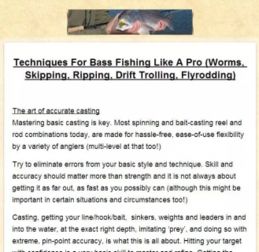Content:
Embarking on the exciting world of fishing can be a thrilling adventure for anyone, regardless of age or experience. Whether you're looking to unwind on a serene lake or challenge yourself on a fast-moving river, fishing offers a unique way to connect with nature and enjoy the tranquility of the outdoors. For beginners, the task of learning the ropes can seem daunting, but with the right guidance and tips, you'll be casting your line like a pro in no time. In this article, we'll explore the essential fishing techniques for beginners and how you can enhance your fishing experience.
Choose the Right Gear
Before you start fishing, it's crucial to have the right equipment. Here's a list of the basic gear you'll need:
- A fishing rod and reel: Select a rod and reel that suit your fishing style and the type of fish you're targeting.
- Line: Choose the appropriate line thickness for the fish you're after. Monofilament, fluorocarbon, and braided lines are the most common types.
- Lures and baits: Depending on your target species, you'll need the right lures and baits. Live bait, artificial lures, and flies are popular options.
- Tackle box: Store your hooks, sinkers, swivels, and other accessories in a tackle box for easy access.
Learn the Basics of Casting
Casting is the process of throwing your line into the water. To improve your casting technique, follow these steps:

- Hold the rod with a comfortable grip, keeping your elbow close to your body.
- Position the line above the rod tip and pull it back until it's taut.
- With a smooth, continuous motion, bring the rod forward, allowing the line to unroll as you go.
- As the line reaches the desired distance, stop the rod movement, and let the line settle into the water.
Understand the Basics of Baiting and Luring
When it comes to baiting and luring, it's essential to know how to present your offerings to attract fish. Here are some tips:
- Live bait: Hook the bait securely and present it in a natural manner. Avoid overworking the bait, as it can spook fish.
- Artificial lures: Experiment with different retrieves and presentations to see what works best for the fish you're targeting.
- Flies: Learn the basic casting techniques for fly fishing, such as the roll cast and the overhead cast. Practice your timing and accuracy to ensure you can present the fly effectively.
Learn to Read the Water
Understanding the water you're fishing in is crucial for success. Pay attention to the following:
- Currents: Observe the flow of the water to determine the best spots to fish.
- Structure: Look for rocks, logs, and other natural structures that may hold fish.
- Vegetation: Fish often lurk in vegetation, so look for areas with abundant aquatic plants.
Patience is Key
Fishing is a sport that requires patience. Don't get discouraged if you don't catch fish right away. Here are some tips to help you stay patient:
- Spend time observing the water and the behavior of the fish.
- Adjust your techniques based on what you see and learn from each experience.
- Remember that fishing is a relaxing activity, so take the time to enjoy the scenery and your surroundings.
Safety First
Always prioritize safety when fishing. Here are some tips to keep you safe:
- Wear a life jacket if you're fishing from a boat.
- Be aware of your surroundings, especially if you're fishing near other anglers or watercraft.
- Follow local fishing regulations and guidelines.
In conclusion, learning the art of fishing can be a rewarding experience for beginners. By investing in the right gear, mastering casting techniques, understanding the water, and practicing patience, you'll be well on your way to becoming a skilled angler. Remember to have fun and enjoy the journey as you explore the wonderful world of fishing. Happy fishing!












